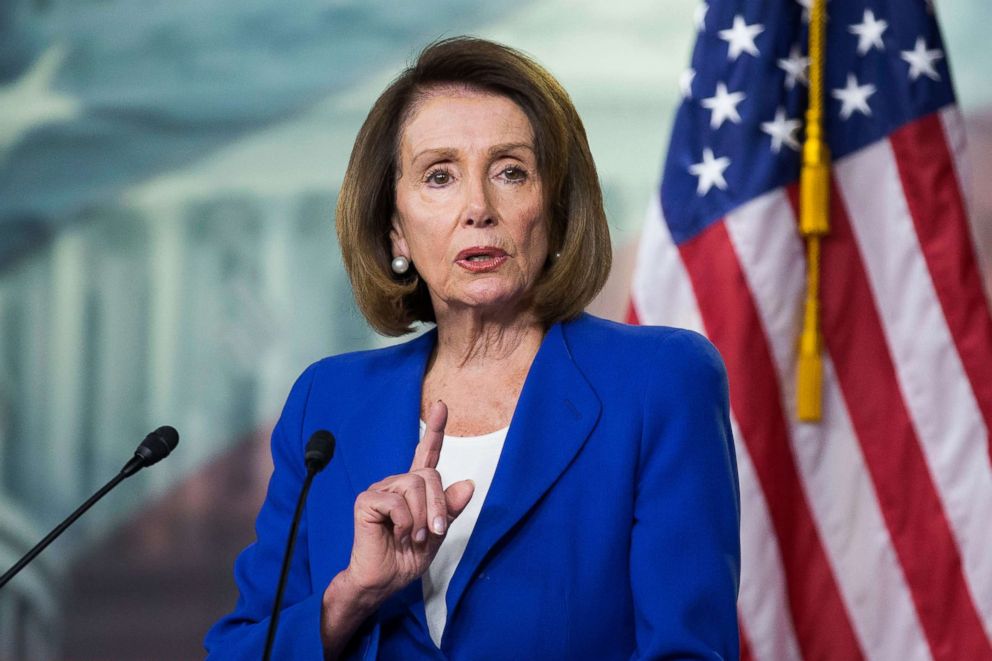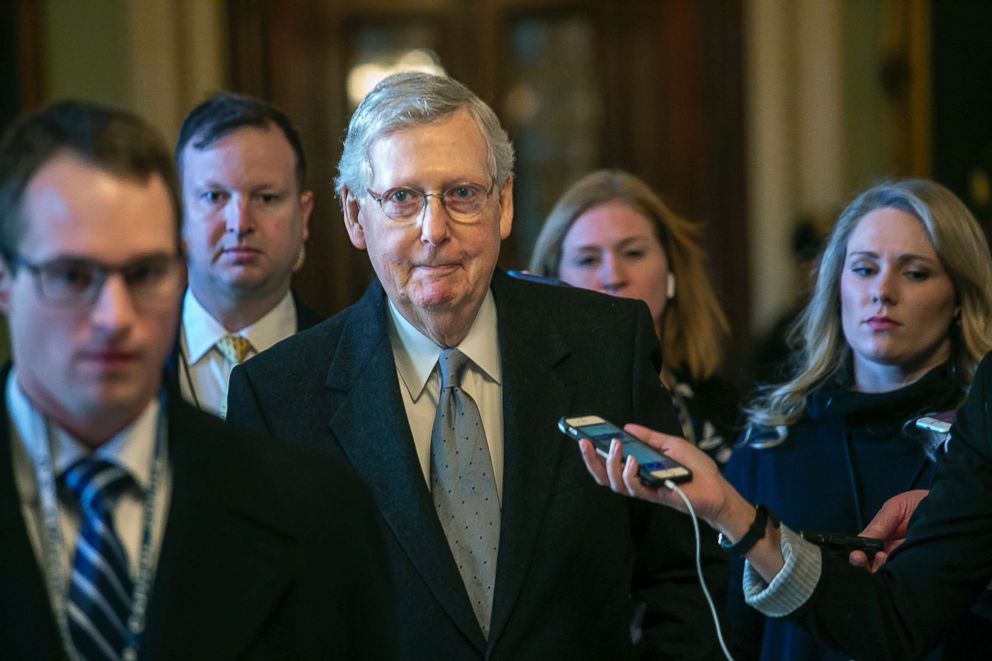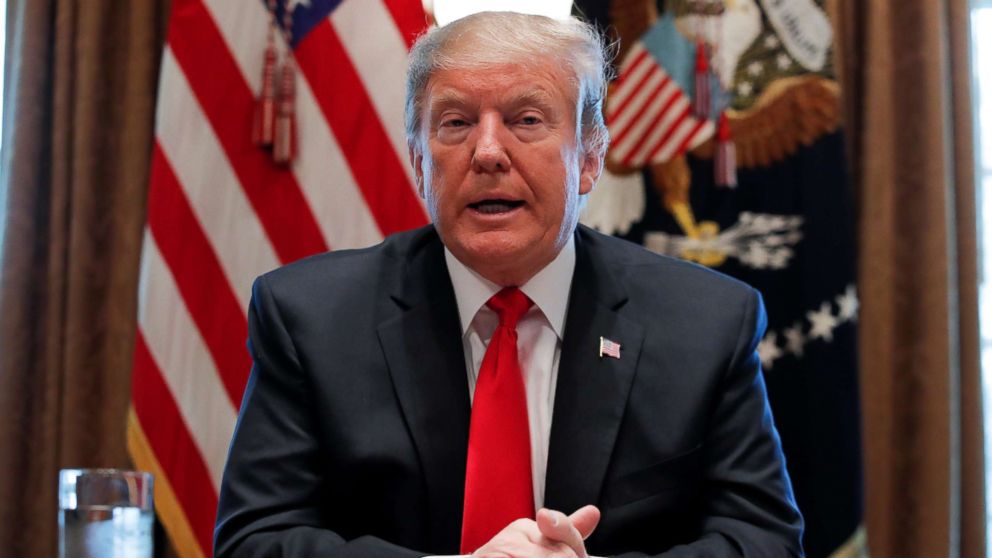Trump declaring national emergency to build wall could complicate matters for Republicans
Lawmakers on Capitol Hill - including key allies of President Donald Trump - are reportedly cautioning him against declaring a national emergency to build his desired border wall and could move to block him if he does so.
Trump warned on Sunday that if Democrats and Republicans can’t strike a deal to fund the government by Feb. 15 with the inclusion of funds for his prized border wall, he could go it alone by declaring a national emergency.
“I don’t take anything off the table,” Trump said in an interview on CBS’ "Face the Nation" that aired on Sunday.
Declaring a national emergency would give the president the power to redirect funds towards building a wall along the Mexican border.
In all likelihood, Trump would be immediately challenged in court if he declared a national emergency where his plans would end up languishing in legal proceedings.
The declaration could also force Republicans in both chambers to publicly split with the president.
A rare resolution of disapproval
Under the provisions of the National Emergencies Act, a presidential declaration can be terminated if lawmakers pass a joint resolution to do so.
House Speaker Nancy Pelosi is currently mulling her options.
“The President has failed to convince the American people and Congress that there is a crisis on our Southern border. The House of Representatives will vigorously challenge any declaration that seeks an end run around Congress’s power of the purse,” a Democratic House leadership aide told ABC News in a statement on Monday.
“A resolution of disapproval is likely should the President goes down this path, but no decisions have been made nor can be made until we see what the President does and how he does it,” the aide said.

The House could assuredly pass the disapproval resolution because the lower chamber enjoys Democratic control. The resolution would move next to the Senate. If every Democrat in the Senate votes in favor of the resolution, only a handful of Republicans would need to sign on for the resolution to be approved.
The optics of such a vote would weigh heavily on Senate Republicans.
According to the Washington Post members of Trump’s own party are reportedly cautioning him that Congress may be forced to act should Trump declare a national emergency.
“I'm for whatever works, which means avoiding a shutdown and avoiding the president feeling he should declare a national emergency,” Senate Majority Leader Mitch McConnell told reporters during a press conference last Tuesday.
On that same day, McConnell in a face-to-face meeting reportedly warned Trump about the consequences of declaring a national emergency in a private meeting at the White House, according to the Washington Post. The consequences could include Congress passing the resolution disapproving the emergency declaration which would force Trump to consider issuing his first veto ever.

A McConnell spokesman declined to discuss the senator’s private conversations with ABC News.
The president has previously reiterated his confidence in the administration’s legal standing for declaring a national emergency, should he decide to declare one.
"We're in a very strong legal standing – we are doing it regardless. We haven't declared the national emergency yet and yet we're building a lot of wall," Trump told reporters last week.
Trump's closest ally on Capitol Hill, GOP Sen. Lindsey Graham, has the president's back on the issue and is urging his fellow Republicans to unite behind the president's efforts.
"To every Republican, if you don’t stand behind this president, we’re not going to stand behind you, when it comes to the wall," Graham said in a speech in Greenville, South Carolina on Monday. "This is the defining moment of his presidency. It’s not just about a wall, it’s about him being treated different than every other president."
Graham added that he would "stand with" Trump if he declares a national emergency to construct the border wall and urged his Republican colleagues to "get behind the president" if he goes down that path.
"To any Republican who denies the president the ability to act as commander-in-chief, you're going to create a real problem within the party," Graham said.
But some GOP senators warn that could set a new precedent for future Democratic presidents.
“We have a lot of folks who are uncomfortable with [an emergency declaration] for different reasons, some of which are constitutional and separation of powers,” Senate Majority Whip John Thune, R-S.D., told reporters last week. “We prefer that not be the direction that the administration chooses to go. But the Democrats have to be willing to play ball here if we’re going to get a deal.”




